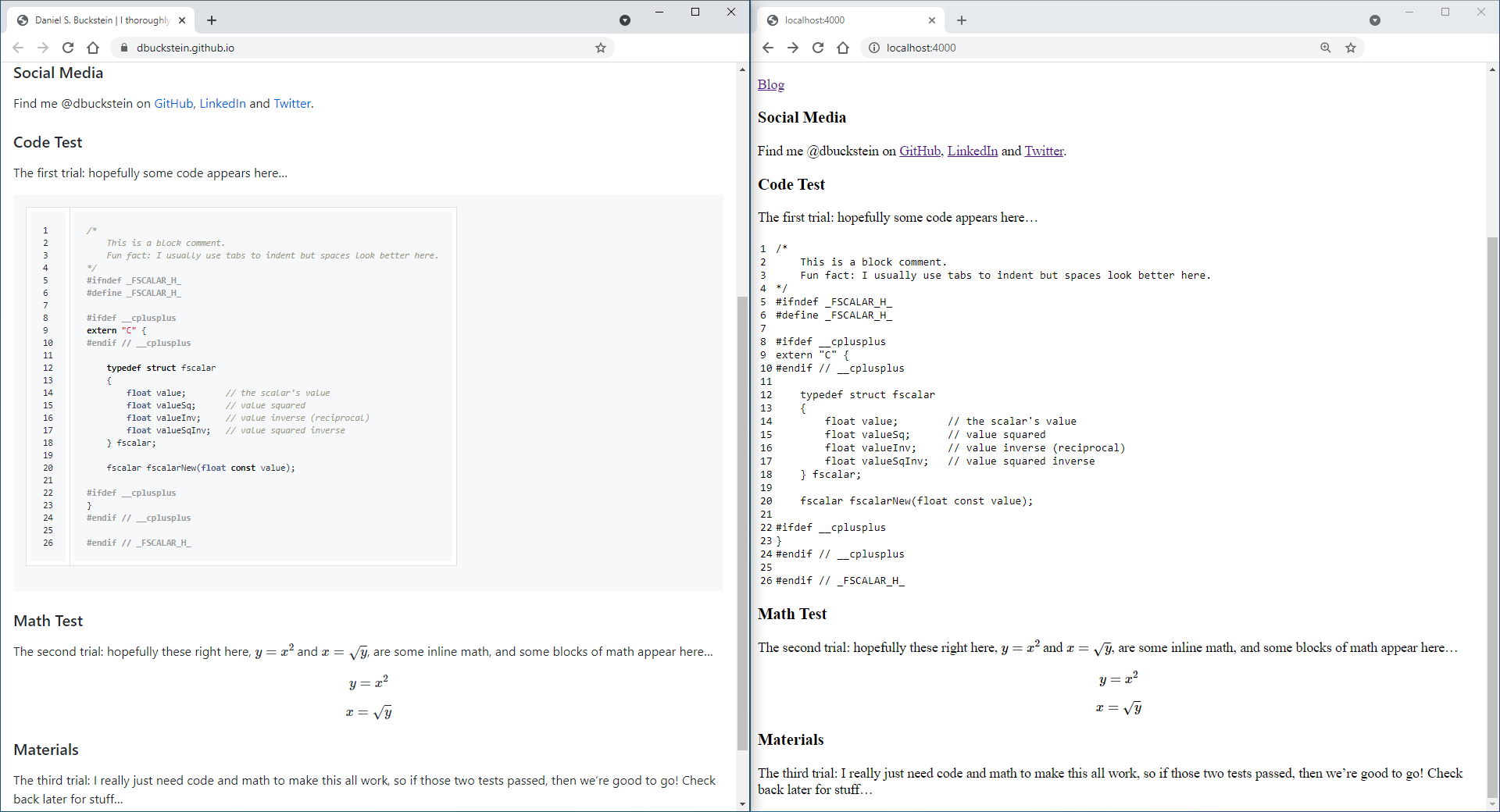Daniel S. Buckstein
Hello Jekyll
I am trying my hand at creating a basic blog/portfolio site with Jekyll, to be hosted with GitHub Pages. For all intents and purposes, this simple setup is perfect for both development on my local environment, and displaying on the web. Check this out:

On the left is how it looks like online (the real thing) and on the right is how it looks to me locally. As you can see, I’m not picky. I see some code and some math, so I can test and rest assured that it’ll likely be fine when published.
If that wasn’t enough, this Jekyll serve thing just auto-updates it whenever I save! Why didn’t I do this earlier, it’s fantastic!
Tests
Code Test
The first trial: hopefully some C code appears here…
1
2
3
4
5
6
7
8
9
10
11
12
13
14
15
16
17
18
19
20
21
22
23
24
25
26
/*
This is a block comment.
Fun fact: I usually use tabs to indent but spaces look better here.
*/
#ifndef _FSCALAR_H_
#define _FSCALAR_H_
#ifdef __cplusplus
extern "C" {
#endif // __cplusplus
typedef struct fscalar
{
float value; // the scalar's value
float valueSq; // value squared
float valueInv; // value inverse (reciprocal)
float valueSqInv; // value squared inverse
} fscalar;
fscalar fscalarNew(float const value);
#ifdef __cplusplus
}
#endif // __cplusplus
#endif // _FSCALAR_H_
Math Test
The second trial: hopefully these right here, \(y = x^2\) and \( x = \sqrt{y} \), are some inline math, and some blocks of math appear here…
\[y = x^2\]\[ x = \sqrt{y} \]
Materials
The third trial: I really just need code and math to make this all work, so if those two tests passed, then we’re good to go!
Check back for newer and cooler posts soon.
D. Buckstein